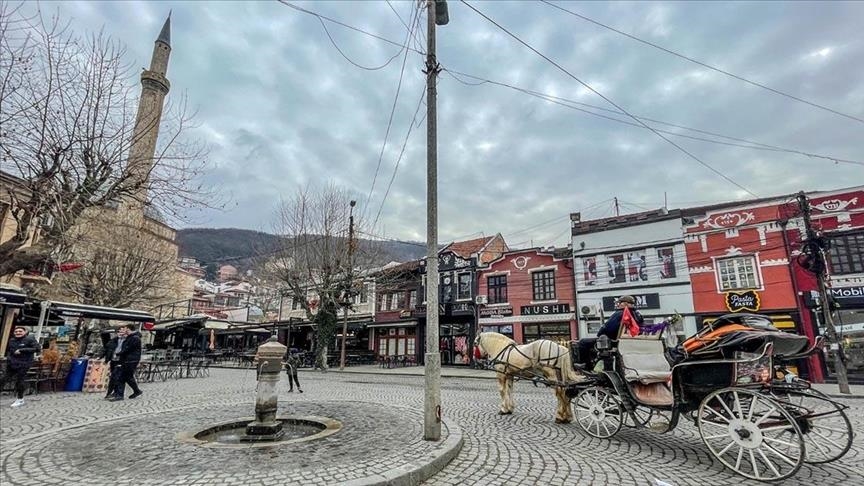Kosovo marks 14th Independence Day
Despite recognition of its independence by over 100 countries, Kosovo continues to lack UN membership due to Russian veto

PRISTINA, Kosovo
Europe's youngest country, Kosovo, is marking its 14 years of independence on Wednesday.
Getting an early taste of its independent future in 1945 as the "Autonomous Province of Kosovo and Metohija" within socialist Yugoslavia, Kosovo later became the Socialist Autonomous Province of Kosovo in 1968.
Yugoslavia's 1974 Constitution afforded the province functional autonomy at every administrative level.
In the late 1980s, Slobodan Milosevic -- then Serbia's president within Yugoslavia -- effectively terminated the 1974 privileges, saying they were contrary to the interests of the Serbs.
This move by Milosevic, who would later be tried for war crimes and died in 2006, drew criticism from the other Yugoslav republics.
In response to the decision, the Kosovo Assembly in 1990 voted to declare its independence in a vote then recognized by neighboring Albania.
Later, clashes between Serbian forces and the Kosovo Liberation Army (KLA), which was founded in 1991, played an important role in the country's move towards independence.
The conflict escalated into the Kosovo War, which lasted from February 1998 until June 1999.
The war ended after a NATO intervention in the form of an extensive bombing campaign, including targets in Kosovo.
Tense years toward independence
Since the war, Serbia and Kosovo have periodically been at odds.
The first major post-war crisis came in 2004, with a series of events known as the March Uprisings. They resulted in the death of 19 people -- 11 Albanians and eight Serbs -- while hundreds were injured.
After the uprisings, a 2005 report by Kai Eide, appointed Kosovo envoy by then-UN Secretary-General Kofi Annan, recommended negotiations on the final status of Kosovo.
In 2007, UN special envoy for Kosovo Martti Ahtisaari presented his report to the UN Security Council stating that Kosovo should be independent.
Kosovo's assembly declared its independence from Serbia on Feb. 17, 2008 despite opposition from the body's Serb members.
Many countries, including Turkiye, recognized Kosovo's independence immediately, despite Belgrade insisting that it remains part of Serbia.
Kosovo is now recognized by 117 countries, including the US, Britain, France, and Germany.
Israel became the last country to recognize Kosovo's independence in 2021.
Serbia, Russia, and China are among the countries that have yet to recognize Kosovo's independence.
Pristina continues to lack UN membership to this day due to Russia's veto.
Dialogue with Serbia
In 2011, the EU initiated a dialogue process to normalize ties between Kosovo and Serbia. However, the process was interrupted by tensions over the last few years.
The killing of Kosovar Serb politician Oliver Ivanovic in Mitrovica, a city in northern Kosovo, in mid-January last year was the first incident to escalate tensions.
Serbia withdrew from a meeting scheduled to take place in Brussels under the dialogue process.
Another event that raised tensions was the detention of the director of the Serbian Government's Kosovo Office, Marko Djuric, on March 26, 2018, in North Mitrovica.
Kosovo has a population of nearly 1.8 million people. Albanians constitute the vast majority, but it also includes various minority groups such as Turks, Bosniaks, Serbs, Goranis, Roma, Ashkalis, and Egyptians.
*Writing by Zehra Nur Duz in Ankara









